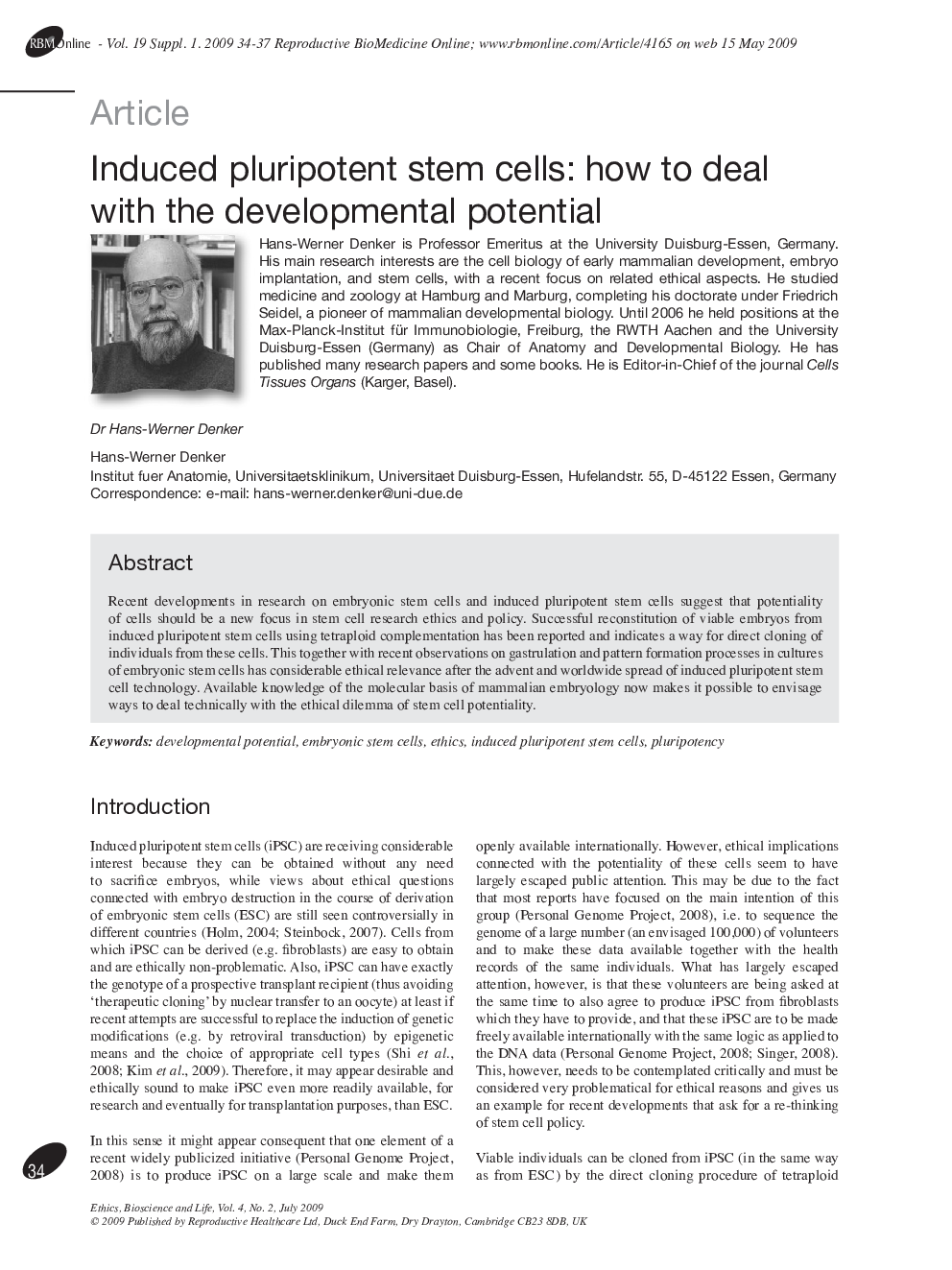| Article ID | Journal | Published Year | Pages | File Type |
|---|---|---|---|---|
| 3971194 | Reproductive BioMedicine Online | 2009 | 4 Pages |
Recent developments in research on embryonic stem cells and induced pluripotent stem cells suggest that potentiality of cells should be a new focus in stem cell research ethics and policy. Successful reconstitution of viable embryos from induced pluripotent stem cells using tetraploid complementation has been reported and indicates a way for direct cloning of individuals from these cells. This together with recent observations on gastrulation and pattern formation processes in cultures of embryonic stem cells has considerable ethical relevance after the advent and worldwide spread of induced pluripotent stem cell technology. Available knowledge of the molecular basis of mammalian embryology now makes it possible to envisage ways to deal technically with the ethical dilemma of stem cell potentiality.
